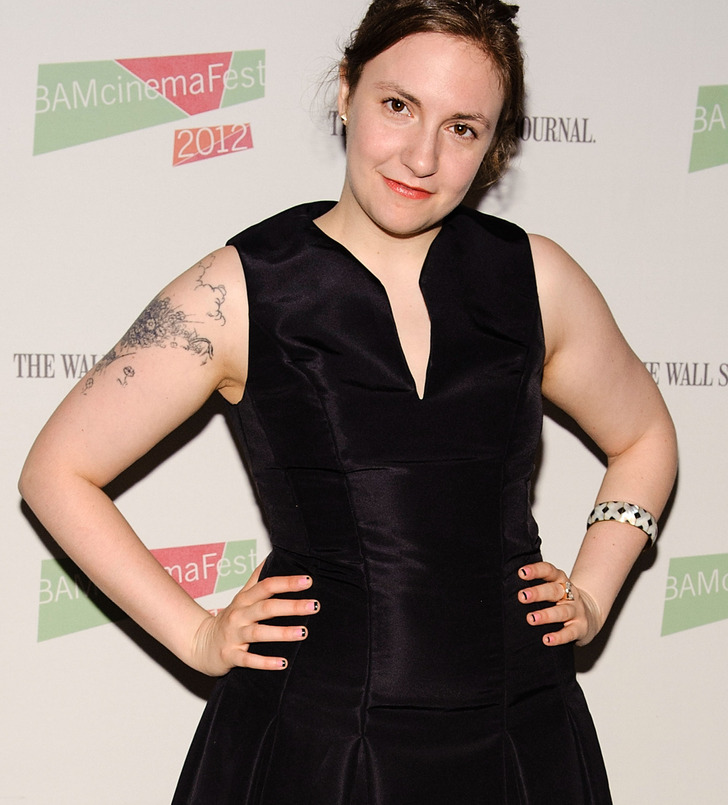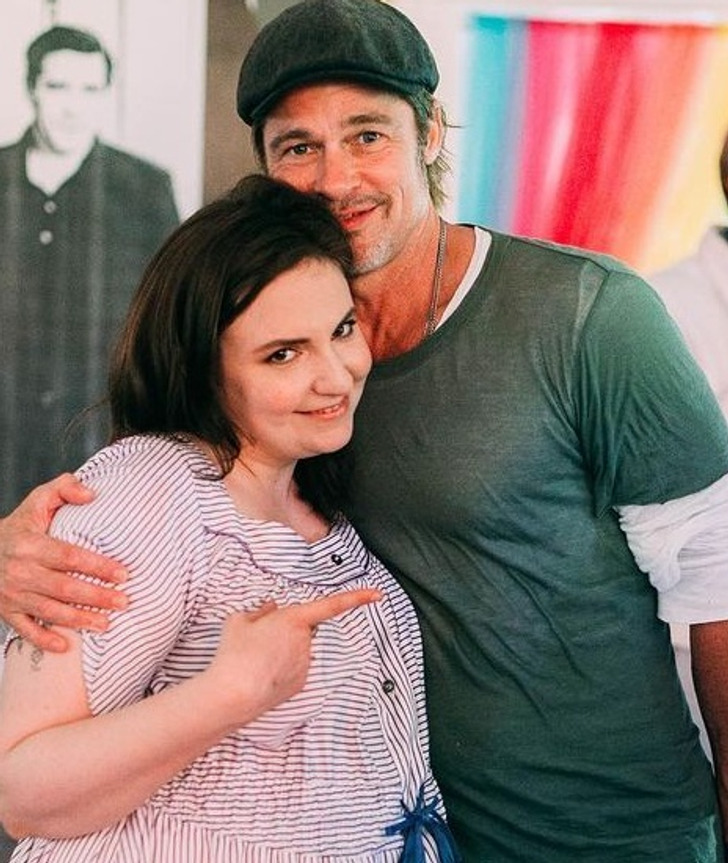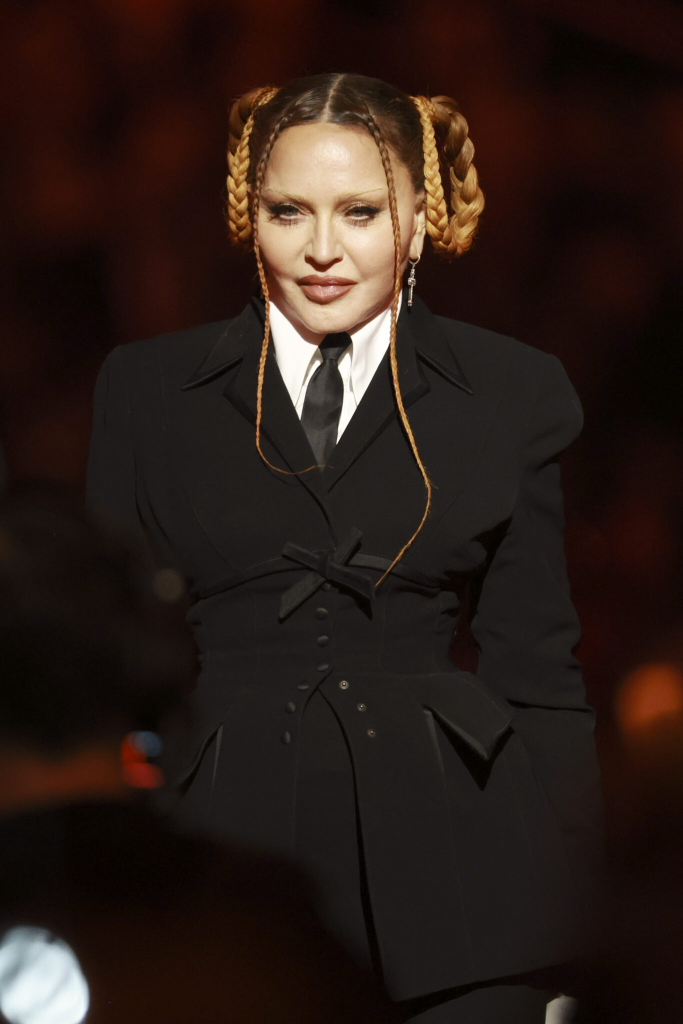There are so many things in the world that we may admire or even get inspired by, but there’s one main thing we may want to fall in love with before we start noticing the beauty of other things. It’s our own reflection in the mirror. Among all the numerous recipes for conjuring up self-love within ourselves, psychologists advise us to never compare ourselves to others and stop caring about other people’s opinions. Actress and producer Lena Dunham knows a lot about cultivating love for her own body despite all the criticism she faced, and she happily shares her journey with us all.
Lena Dunham doesn’t accept the term “body positivity,” and here’s why.



Actress and writer Lena Dunham has recently added another string to her bow and collaborated with the brand 11 Honoré to create a plus-size clothing collection. But the very term “plus size” frustrates Lena, and so is the term “body positivity.” In one of her Instagram posts, she explains that she feels more “body tolerant” than “body positive.”
In her interview, Dunham said, “The thing that’s complicated about the body-positive movement is it can be for the privileged few who have a body that looks the way people want to feel positive. We want curvy bodies that look like Kim Kardashian has been up-sized slightly. We want big beautiful butts and big beautiful breasts and no cellulite and faces that look like you could smack them onto thin women.”
Dunham has a very special relationship with her own body.



Dunhams path to self-love started with a decade-long journey with endometriosis. Since she started her own fight against it, she has been candidly sharing how it influenced both her emotional health and her relationship with her own body image. In her Instagram post, she emotionally described how she fluctuated between loving her body and the opposite.
She wrote, “Ya know when you’re home alone, and you realize you’d be happier in a hot lil’ onesie than your ketchup and cat food stained pajamas? And it’s not about a boy or a photo shoot or a weight loss before-and-after, it’s just for the feeling of glee you get from dressing your one and only corporeal form in pleasing fabrics, the unique pleasure of admiring the twists and turns of the body that loves the heck out of you even when you don’t love it.”
Dunham is powerfully addressing all people who come to her page with criticism.



In 2021, Dunham tied the knot with musician Luis Felber. It was such a darling event for her that she wore 3 wedding dresses to marry her love and shared the photos on her Instagram. However, she started getting some “gnarly” comments in her feed from people who commented on her body and appearance. The actress didn’t hesitate for a minute to address them with a powerful message.
She wrote, “One narrative I take issue with, largely because it’s a story I don’t want other women, other people, to get lodged in their heads, is that I should somehow be criticized because my body has changed since I was last on television. […] But lastly, when will we learn to stop equating thinness with health/happiness?”
Dunham’s powerful message can be echoed in the hearts of many.


For all people who have ever hesitated about embracing their body image, Dunham has some simple yet wise advice. She says, “Of course weight loss can be the result of positive change in habits, but guess what? So can weight gain. The pics I’m being compared to are from when I was with an undiagnosed illness. In the last 4 years, I’ve begun my life as someone who aspires toward health and not just achievement.
These changes have allowed me to be the kind of sister/friend/daughter that I want to be and yes — meet my husband (who, by the way, doesn’t recognize me in those old photos because he sees how dimmed my light was). I say this for any other person whose appearance has been changed with time, illness, or circumstance — it’s okay to live in your present body without treating it as transitional. I am, and I’m really enjoying it. Love you all.”
Do you find Lena Dunham’s example inspiring? What do you love the most about your appearance?
Preview photo credit Steve Granitz / WireImage / Getty Images, lenadunham / Instagram
At 65, Madonna praised as the “most beautiful” woman in the world after sharing sultry photos
It’s difficult to believe that Madonna is now 65 years old. It feels like only yesterday that the Queen of Pop burst onto the scene, and ever since she’s been entertaining millions of people the world over every year.

At present, Madonna is on her much-anticipated Celebration Tour, having recovered from the nasty bacterial infection that left her hospitalized earlier this year.
Recent snaps of the Like a Virgin singer were met with widespread praise among her legion of fans, as the 65-year-old continues to prove that age is just a number… and that she’s far from done with regards to being a prominent force in the music industry.
Fans were right to be concerned earlier this year in summer, when Madonna was suddenly hospitalized.
Initial reports were worrying enough, but it soon became apparent that her health scare was even more grave than first thought.
The Queen of Pop had been set to embark on her highly anticipated Celebration Tour in Vancouver on July 15 – which would have seen her perform her best hits from 1983 to now in 53 shows across North America and Europe – but was forced to postpone it after she was rushed to hospital with a bacterial infection.
Initial reports revealed Madonna had been found unresponsive on Saturday, June 24, and was subsequently to a New York City hospital where she was intubated.
Not long after, a relative of the Grammy winning artist told Entertainment Tonight that her family had been “preparing for the worst” after the news first broke. “For the past couple of days, no one really knew which direction this was going to turn, and her family was preparing for the worst,” they said.
“That is why it was kept a secret since Saturday,” they added. “Everyone believed that we may lose her, and that has been the reality of the situation.”

Radar Online, meanwhile, revealed that Madonna’s stint in hospital was more severe than initially thought – medics who treated the unresponsive star at her apartment were reportedly forced to administer a NARCAN injection.
Fortunately, the singer was eventually released from hospital and could continue her recovery at home. Her aforementioned Celebration Tour is now in full swing, with the Vogue star gaining widespread praise for her looks after uploading a series of photos from her tour.
According to reports, the Paris, France leg of Madonna’s tour attracted particular attention, with fans showering her with compliments. One even dubbed her “the most beautiful woman in the world.”
One person wrote on Twitter: “How is this woman sixty five years old? Please share your secrets with us and your filter. QUEEN ??“
Another wrote: “You look like a woman of 35 years old”
A third added: “THE most famous woman ever in front of a lens. Still the most exotic, most beguiling thing I’ve ever seen 
Famous fashion designer Donatella Versace, meanwhile, praised her long time friend as being “the most beautiful”.
What do you think? Do you agree that Madonna looks astonishingly good for her age? Let us know!



Leave a Reply